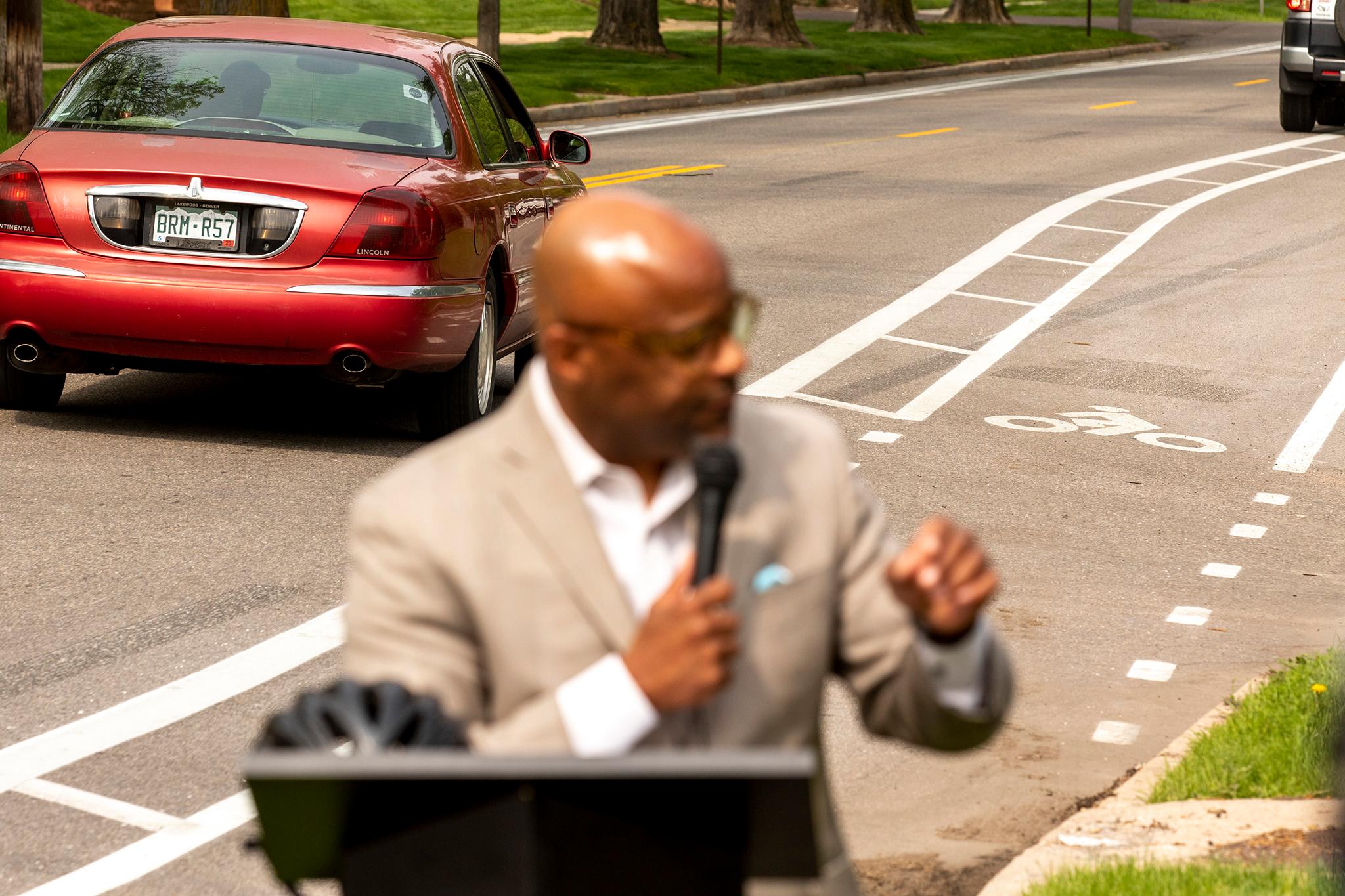The city and county of Denver has built 137 miles of new bike infrastructure in the last five years, Denver Mayor Michael Hancock announced on Wednesday.
That surpasses the goal of 125 miles Hancock set in 2018.
"These are new opportunities for people to get to work, to the store, to school, to recreation, to do it safely and comfortably," Hancock said as he stood next to a new bike lane adjacent to Rocky Mountain Lake Park in northwest Denver. "These alternative modes of transportation and travel ... improve our health and our climate."
The 137-mile figure needs a caveat, however: The city double-counted some of the new bike lanes. So one mile of a street with two opposite-direction bike lanes counts as two miles of bike lanes.
Hancock, who was driven to the event in a large black SUV, has long pushed plans with goals of reducing driving in favor of cleaner modes of transportation like walking and biking. One 2017 plan, for example, set a goal of increasing the percentage of commuters who walk or bike from 8 percent to 15 percent by 2030.
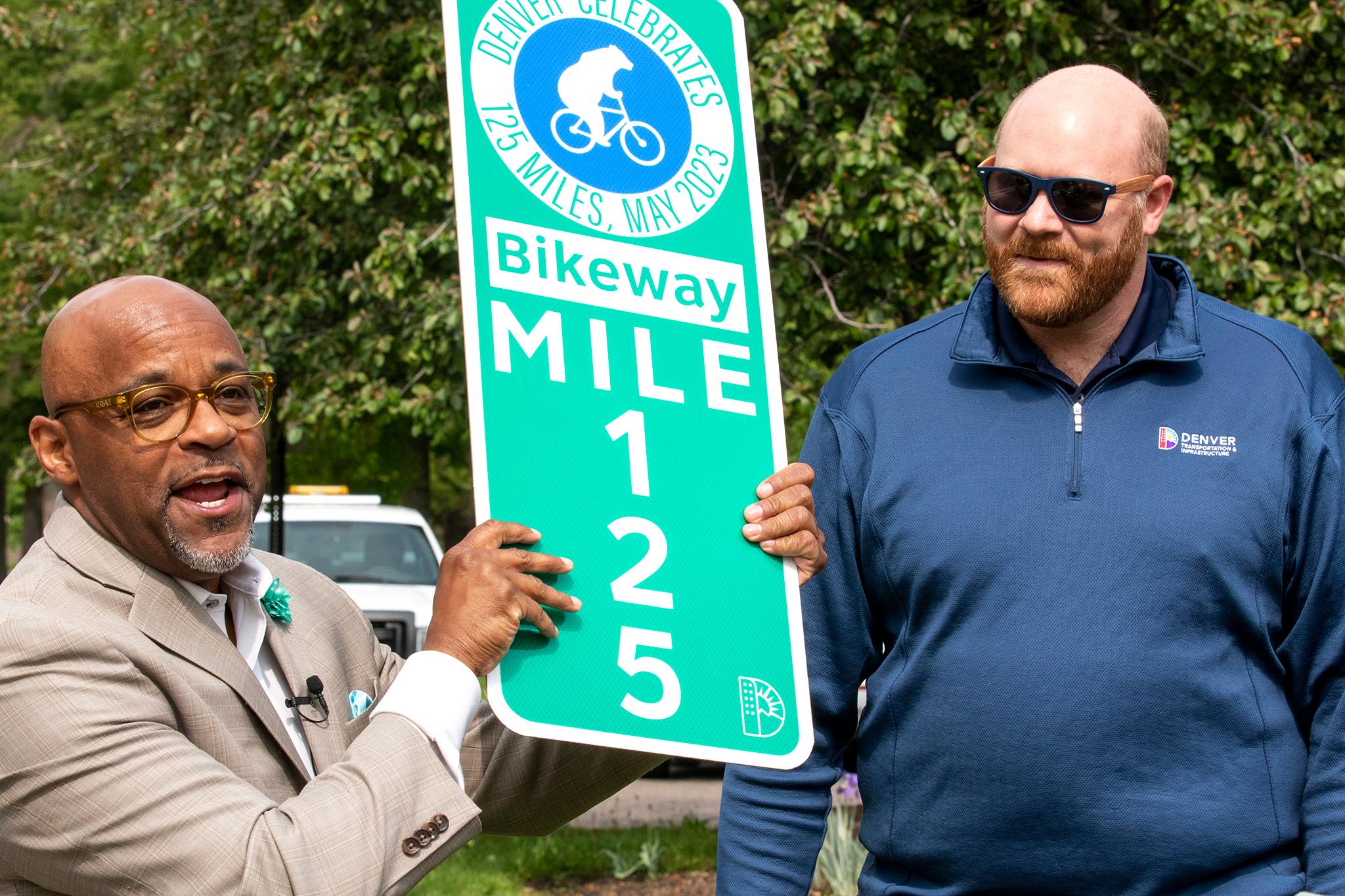
The push to quickly build bike infrastructure is one of the most public ways his administration has tried to manifest those plans.
"The old single-mode transportation system in Denver no longer applies," he said. "We have grown exponentially over the last decade. We have to be a more multimodal city and we got to have the infrastructure that supports it."
Bicycle advocates say they're grateful for the new infrastructure. But they want it to be better, and want more of it too.
"There is definitely improvement," said David Chen, a self-described bike dad and member of the Denver Bicycle Lobby who attended Hancock's press conference. "There is definitely good infrastructure in the city. The problem is it's not connected."
Chen said he rode on the new Julian Street bikeway to reach the press conference. The bikeway was great, he said, until it hit busy West 38th Avenue and abruptly ended with no connection to other bike infrastructure.
"We do not have a connected network yet," he said.
Hancock said his press conference was "not a victory lap," and insisted the city would continue to build new bike infrastructure. But whether and how that happens will largely be up to Denver's next mayor: Hancock will leave office in July.
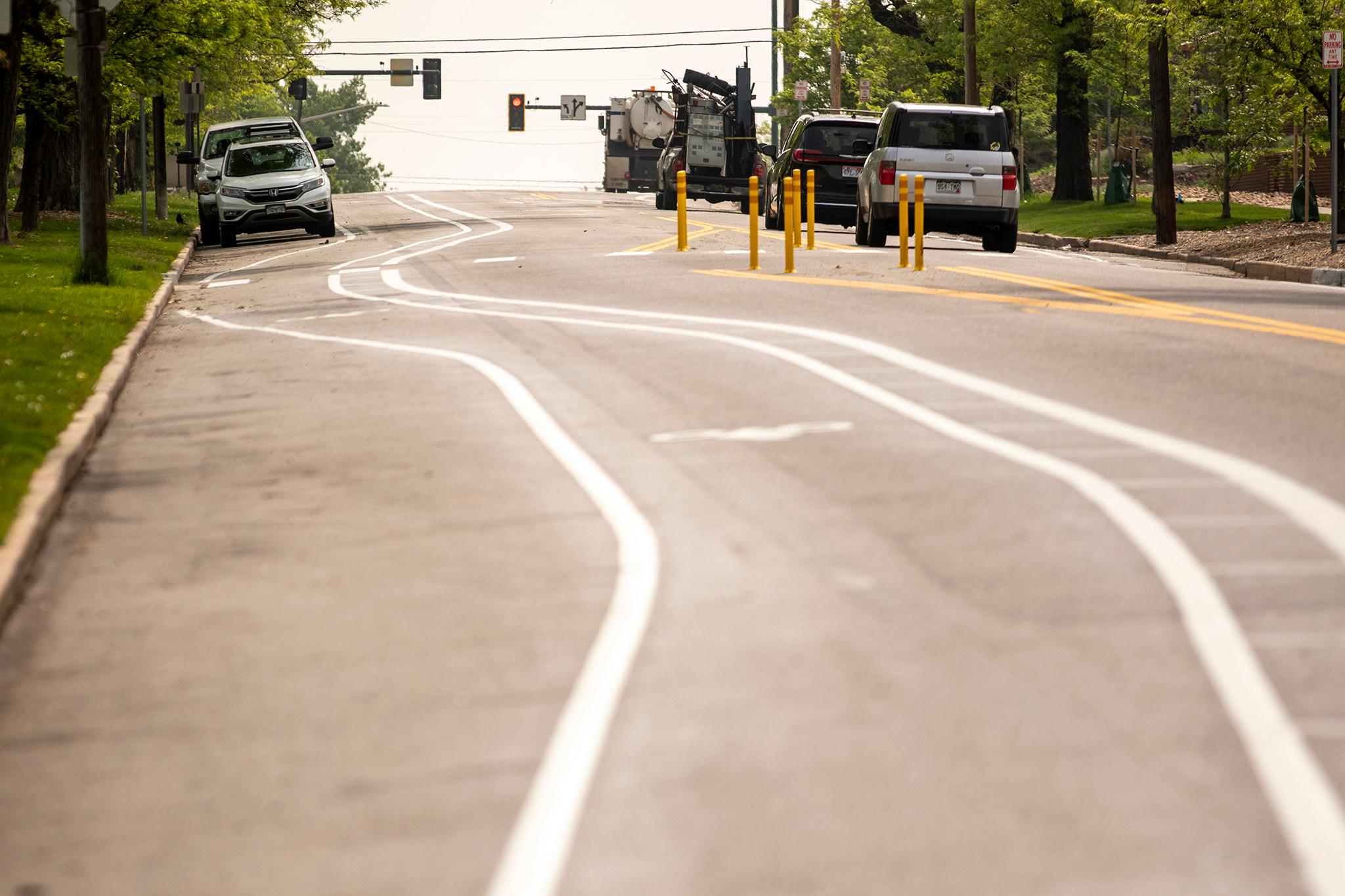
One finalist for that job, Kelly Brough, initially told Denverite she didn't think the city needed more bike lanes. She later said she wants a "reset" on bike and pedestrian infrastructure in light of rising fatalities.
"Are we making the right investments in the right places?" she asked. "I don't know that we're building them [bike lanes] in a way that is improving safety, and my priority is safety when we build those."
The other contender, Mike Johnston, has said he supports removing parking or travel lanes as appropriate to create more protected bike lanes.
"What becomes clear every time you ride is that not all bike lanes are created equal," Johnston said at a March forum on transportation. "We know that for someone to just paint some lines on the street and expect you to ride next to cars going 50 miles an hour does not mean that you feel safe, and so I think the key question here is how are we creating a network of high comfort bike lanes of lanes that have real protections?"
Hancock's staff wanted more high-comfort bike lanes, but cars got in the way.
City officials said in 2020 that they'd favor "high-comfort" bike lanes. The city defines those as bike lanes protected from moving vehicles by physical barriers, trails and paths separated from traffic, and "neighborhood bikeways" -- streets designed to slow and limit vehicle traffic.
The city considers painted bike lanes, even if they are buffered from traffic, to have a moderate or low comfort level.
Using those definitions, 69 miles, or just over half of the 137 new miles of bike infrastructure are either low or moderate comfort. Sixty-eight miles are high comfort. Here's the breakdown from the city.
- 24 miles of painted bike lanes
- 45 miles of buffered bike lanes
- 23 miles of protected bike lanes
- 34 miles of neighborhood bikeways
- 11 miles of shared use paths and trains
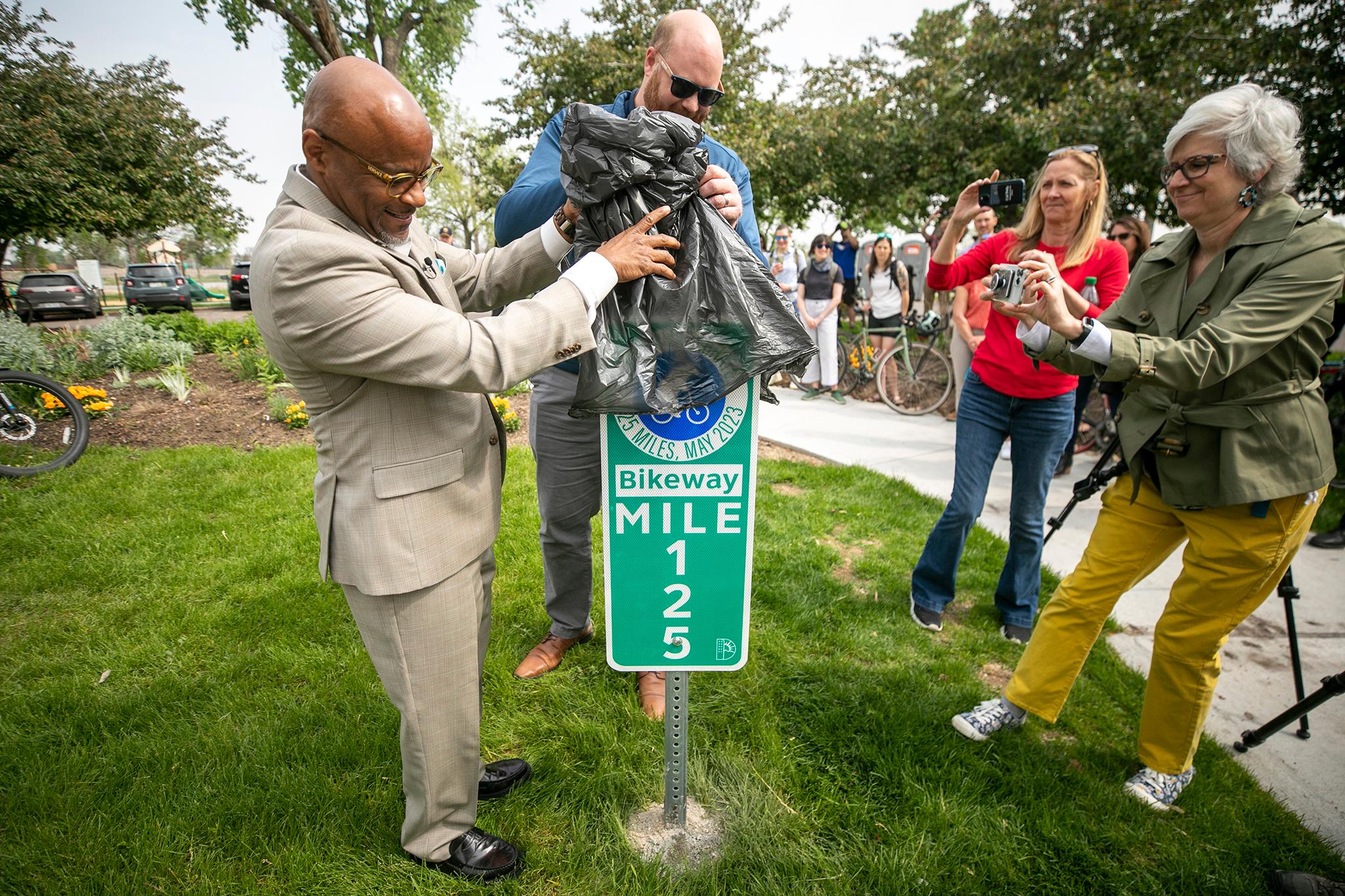
Advocates have complained that some high-comfort projects were watered down along the way after community pushback. Some have been shelved entirely: The city postponed an ambitious plan to install protected bike lanes on Washington and Clarkson streets through the densely packed Capitol Hill neighborhood in 2020 after residents raised concerns about the loss of on-street parking.
"The residents who are using the on-street parking are not wealthy," Brad Cameron, president of Neighbors for Greater Capitol Hill, told Westword in 2020. He was not available to speak to Denverite on Wednesday. "They're renters, and they work all over the metro area. The folks who will suffer the most from this don't have garages."
It was "really disappointing" for the city to drop the Capitol Hill project, said Molly McKinley, a Capitol Hill resident and policy director at the Denver Streets Partnership.
"It's one of the areas that the city really needs and can rely on to make the mode-shift goals that it set for itself," she said, adding: "I hope that it's something that the next administration revisits."
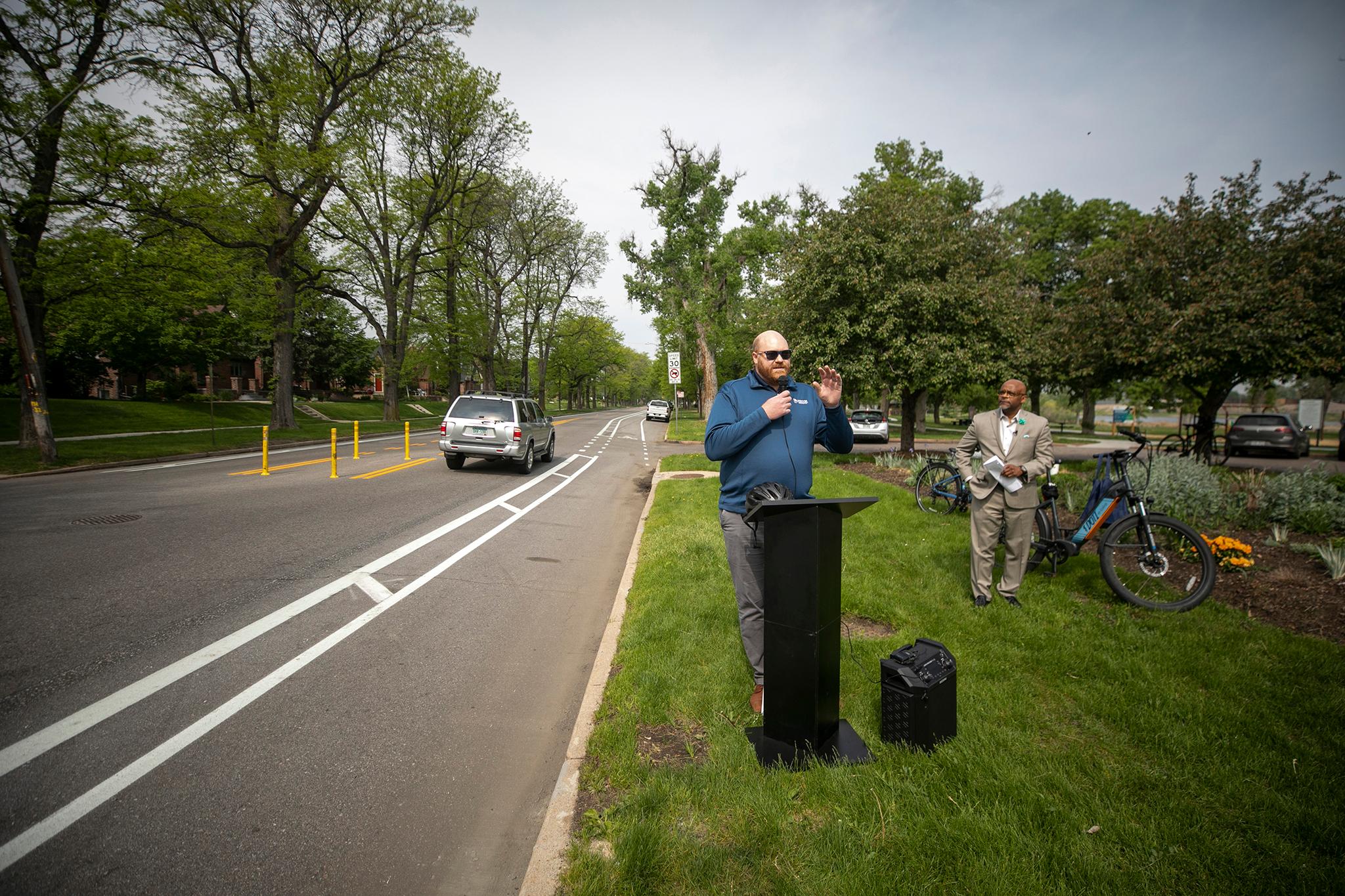
Bike lanes on Washington and Clarkson had been in city plans since at least 2011. And the city has not dropped it entirely, said Sam Piper, multimodal planning supervisor for the city's Department of Transportation and Infrastructure.
"That's still in our bike plan," he said. "We still are going to move that project forward."
In the meantime, Piper said, the city will focus first on lower-impact neighborhood bikeways on nearby Emerson and Pearl streets.
Disclosure: The author regularly rides his bicycle through Capitol Hill.

